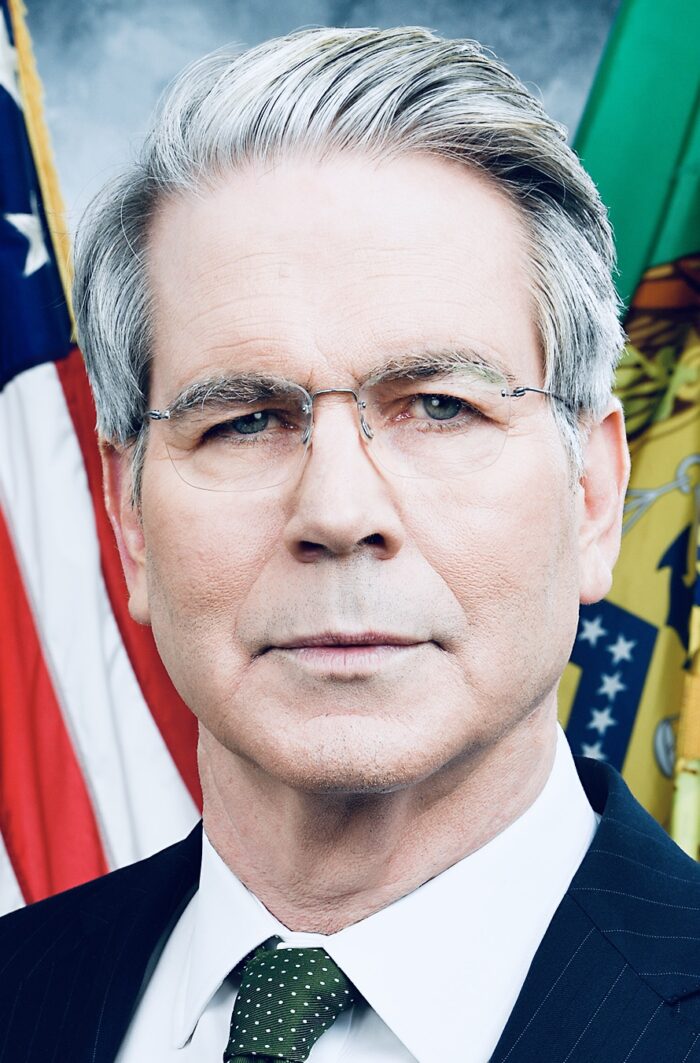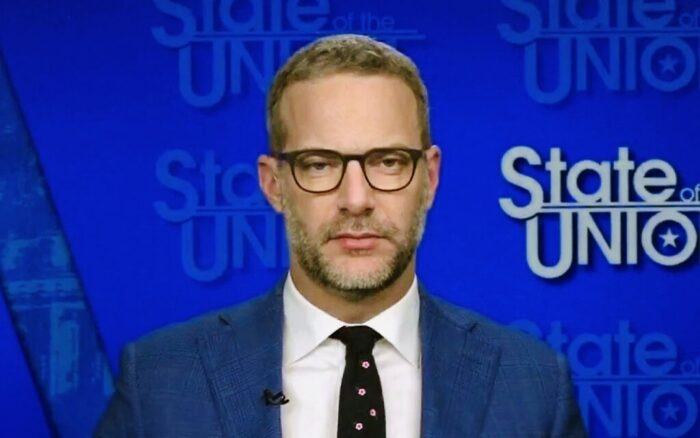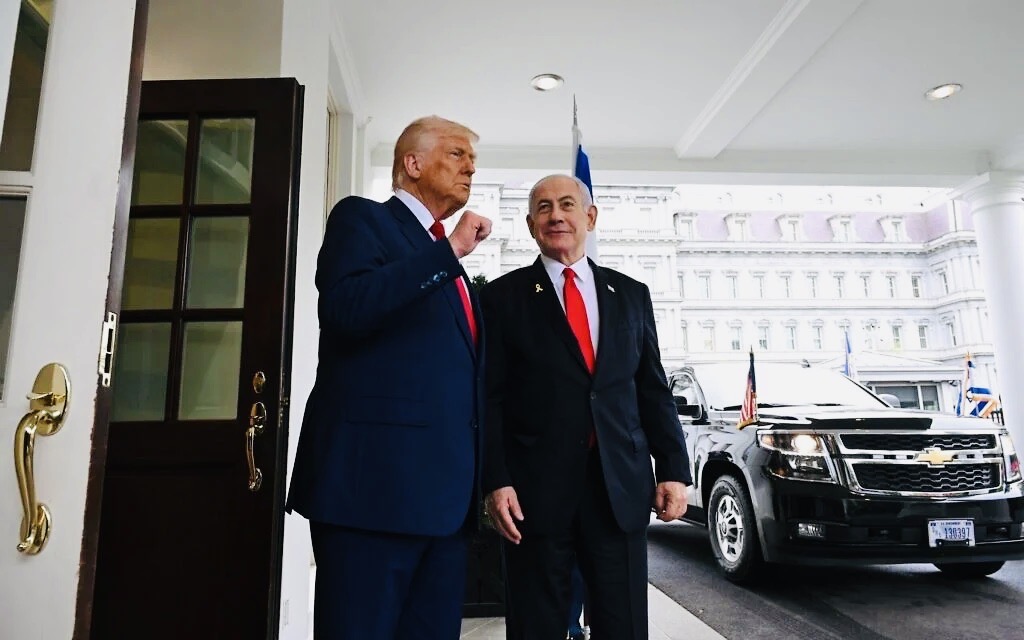Compared to his upbeat meeting with Donald Trump in Washington in February, Prime Minister Benjamin Netanyahu’s most recent encounter with the U.S. president was generally disappointing.
Netanyahu arrived at the White House on March 7, fresh from a successful visit to Hungary, whose illiberal president, Viktor Orban, is aligned with Israel and the United States on a raft of major issues.
Netanyahu — the first foreign leader to meet Trump since his unilateral imposition of biting tariffs on friends and foes alike — expected the Trump administration to either reduce or remove a 17 percent tariff on imports from Israel.
The Israeli government was surprised by the tariffs, which are seven percent higher than the 10 percent minimum levy slapped on U.S. trading partners.
In anticipation of the Trump levies, Israeli Finance Minister Bezalel Smotrich signed an order last week eliminating tariffs on U.S. exports to Israel, hoping it would appease Trump and enable him to exclude Israel from tariffs.
Prior to his departure to the United States — Israel’s chief ally and largest trading partner — Netanyahu exuded optimism that Israel would be exempted from the tariffs.
“I can tell you that I am the first international leader, the first foreign leader, who will meet with President Trump on the issue, which is so important to the Israeli economy,” Netanyahu said.

Implying that Israel might receive favorable treatment from Trump, Netanyahu said his visit would be a reflection of “the special personal link, as well as the special ties between the U.S. and Israel.”
This was not to be.
Neither Trump nor Commerce Secretary Howard Lutnick agreed to commit themselves to reducing or removing the tariffs.

Trump complimented Netanyahu as a “great leader,” but he would not yield an inch on tariffs. Indeed, he changed the subject during their joint press conference. Speaking of American military assistance to Israel, he said, “Don’t forget, we help Israel a lot. We give Israel $4 billion a year, that’s a lot. We give Israel billions of dollars a year. Billions. It’s one of the highest of anyone.”
Trump’s cavalier comments came as a blow to Netanyahu, who has hailed Trump as the most pro-Israel president in history.
There is no doubt that Trump’s tariffs pose a problem for Israel. They could well weaken Israel’s high-tech sector, dampening investment and growth. Tariffs may impel U.S. importers to look for alternative suppliers, particularly in the fields of diamonds, machinery and medical equipment.
A reduction of Israeli exports to the U.S. could weaken Israel’s currency, drive up the costs for imports and thereby increase inflation at a fraught moment when the prolonged war in the Gaza Strip is taking an economic toll on Israelis.
Apart from tariffs, Netanyahu was surprised by Trump’s announcement that the United States has begun engaging Iran in talks on its nuclear program. These discussions, the first between the U.S. and Iran in years, are due to be resumed in Oman in the next few days.
In 2018, Trump withdrew from the 2015 Iran nuclear agreement, blasting it as a terrible deal and imposing further sanctions on the Iranian regime.
Last week, Trump threatened to bomb Iran if it rejected negotiations with the United States over its controversial nuclear program. Israel regards it as an existential threat, and Netanyahu has elevated it as a signature issue of the utmost importance.
In light of Trump’s threats, Netanyahu hoped he would adopt a tougher approach and consider the possibility of military action against Iranian nuclear sites.
Trump, in his White House remarks the other day, disappointed Netanyahu by voicing a preference for diplomacy over war. But he warned Iran that it would be in “great danger” if talks failed. And he reiterated his objection to a nuclear-armed Iran.
Netanyahu insists that a renewed deal should resemble the “Libya model.” In 2003, Libya dismantled its nuclear infrastructure and shipped it to the United States.
A day after his meeting with Trump, Netanyahu outlined his objective with respect to Iran’s nuclear infrastructure: “We go in, blow up the facilities, dismantle all the equipment, under American supervision and American execution. If that doesn’t happen and Iran simply drags out talks, then the option is military.”
On another topic, Trump reiterated his support for owning and rebuilding the Gaza Strip, transforming it into the “Riviera” of the Middle East, and transferring its Palestinian population to neighboring Arab countries.
Two days ago, however, Trump did not repeat his threat to claim ownership of Gaza. Since February, he has not taken a single practical step to realize his fantastical and much-criticized vision of “taking over” Gaza. Israel is still the only country seriously interested in Trump’s far-fetched scheme.
Trump, in a flippant remark, questioned Israel’s unilateral withdrawal from Gaza in 2005, saying he would not have relinquished it had he been Israel’s prime minister.
Trump expressed sympathy for the Israeli hostages still in Gaza, and he blasted Hamas’ invasion of Israel on October 7, 2023. But he refrained from discussing Israel’s ongoing offensive in Gaza and did not speak of ways to end the 18-month war. And he remained silent on normalizing Israel’s relations with Saudi Arabia and thereby enlarging the 2020 Abraham accords.
Netanyahu was concerned by Turkey’s efforts to establish military bases and extend its political influence in Syria since the fall of Syrian President Bashar al-Assad last December. He asked Trump to support Israel on this issue. Much to his disappointment, Trump praised Turkish President Recep Tayyip Erdogan, who recently invoked Allah to “destroy Zionist Israel.”
Trump congratulated Erdogan, one of Israel’s harshest critics, for “taking over” Syria and, furthermore, he described him as “very smart.” Addressing Netanyahu, Trump said condescendingly, “Any problem you have with Turkey, I think we can solve, as long as you are reasonable, you have to be reasonable.”
Judging by the tone of his public meeting with Trump two days ago, Netanyahu left Washington empty-handed and with something of a heavy heart.
He should not have been taken aback by Trump’s self-interested America First policy. As observers have noted, Trump is invariably self-absorbed, erratic, unpredictable and transactional.
Nevertheless, he has compiled a pro-Israel record.
During his first term, Trump recognized Jerusalem as Israel’s capital and moved the U.S. embassy from Tel Aviv to Jerusalem. In addition, Trump recognized the Golan Heights, which Israel seized from Syria during the Six Day War, as sovereign Israeli territory.
Netanyahu offended Trump when he congratulated his successor, Joe Biden, following the 2020 presidential election. Last summer, they reconciled when Trump met Netanyahu at his Mar-A-Lago estate in Florida.

After his first meeting with Trump in February, Netanyahu was ecstatic. In a speech to the Knesset, he said, “Throughout my years as prime minister, I have met with the presidents of the United States 20 times at the White House. But the historic meeting with President Trump was the most important and friendly I have ever had with an American president.”
Netanyahu called Trump’s plan to assume ownership of Gaza as “remarkable” and “revolutionary,” and he claimed that Israel and the U.S. were totally in accord on “essential” issues in the Middle East ranging from the Gaza war to Iran.
Trump, unlike Biden, has not criticized Israel’s military operations in either Gaza or Lebanon, or Israel’s handling of the humanitarian crisis in Gaza.
And Trump has had no public objections to Israel’s bombing campaign of Syrian military assets in post-Assad Syria, or its seizure of the Syrian side of Mount Hermon and of parts of the United Nations demilitarized zone near the Golan.
Trump has rescinded a Biden-era order requiring the U.S. to report potential Israeli violations of international law involving American-supplied weapons. Trump has agreed to sell nearly $3 billion worth of military supplies to Israel. In that arms package are heavy bombs and D-9 bulldozers that had been held up by the Biden administration.
Trump has lifted sanctions Biden imposed on several members of the Israeli settler movement in the West Bank. And last month, Treasury Secretary Scott Bessent welcomed his Israeli counterpart, Bezalel Smotrich, to Washington. During the Biden period, he was shunned as an extremist.

The Trump administration, though, upset Israel when its hostage negotiator, Adam Boehler, met a Hamas delegation in Doha in early March. This was the first time the United States had conducted direct talks with Hamas, which it regards as a terrorist organization. Strategic Affairs Minister Ron Dermer, Netanyahu’s confidant, lashed out at Boehler, and he was quickly removed from the Israeli hostage file.

Previously, the Trump administration compelled Israel to vote against a United Nations General Assembly resolution affirming Ukraine’s territorial integrity and condemning Russia’s 2022 invasion of Ukraine. Israel has normally voted for such resolutions. But in this instance, Israel voted with 13 countries, including Iran and North Korea, against the resolution.
Netanyahu is ready to make such compromises in the interests of preserving Israel’s ties with Trump and the Republican Party, which is considerably more supportive of Israel than the Democrats.
According to a new Pew Research Center survey, released last night, American views of Israel have turned more negative over the past three years, with 53 percent of adults now expressing an unfavorable opinion of Israel, up from 42 percent in March 2022. Confidence in Netanyahu remains at only 32 percent.
A poll commissioned recently by the University Chicago and the Associated Press indicates that 82 percent of Republicans approve of Trump’s handling of the war in Gaza, compared to 14 percent of Democrats and 33 percent of independents. The survey found that 53 percent of Republicans and 34 percent of Democrats regard Israel as a close ally.
A Gallup poll found that, while 46 percent of Americans sympathize with Israel, 33 percent favor the Palestinian side. A decade ago, the figures were 62 percent and 16 percent.
The long and short of it is that Israel has lost ground in American public opinion, notwithstanding Trump’s affinity for Israel.
